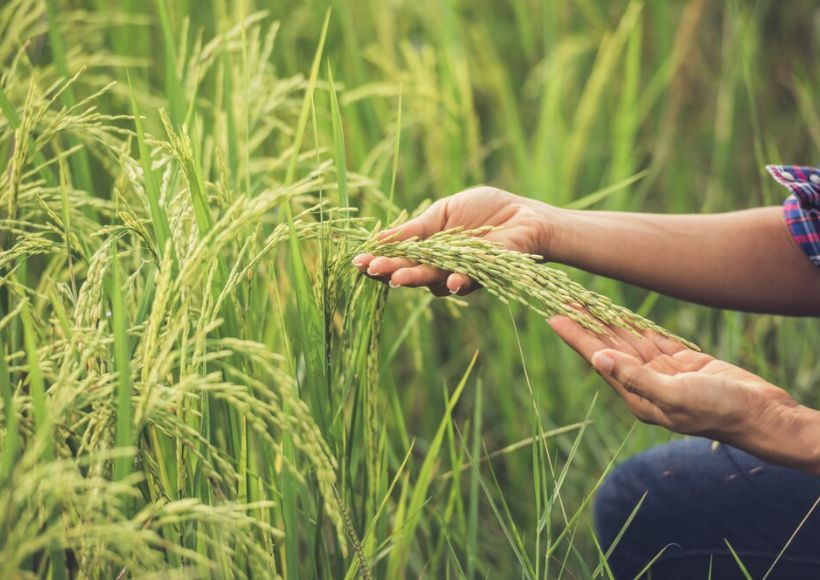Cultivating the Future: The Importance of Sustainable Food Farming for Food Sustainability
In recent years, the global food system has come under increasing scrutiny due to its environmental impact, resource depletion, and contribution to climate change. As concerns about food security and environmental sustainability continue to mount, there is growing recognition of the need to transition towards more sustainable food farming practices. In this blog, we’ll explore the importance of sustainable food farming for food sustainability, backed by data and statistics that highlight the urgency of this issue.
Statistics and Facts on the Sustainable Food Industry Source: Statista
The sustainable food movement has gained momentum in recent years, propelled by the rising popularity of local and organic food initiatives, albeit with somewhat less recognition. While definitions of sustainable food can vary, it generally encompasses food produced using methods that prioritize environmental protection and the welfare of those involved in production. This definition extends to seafood and other animal products as well.
The global market value of ethically labeled packaged foods is projected to increase from 793.3 billion U.S. dollars in 2015 to 872.7 billion U.S. dollars by 2020. In the United States, the retail value of products with ethical labels is also expected to see growth in the coming years, although not significantly.
Fair trade products have experienced growing popularity in recent years. While fair trade coffee and tea were once the primary options, the market has expanded to include fair trade sugar, honey, wine, apparel, coconuts, and seafood, among others. UTZ, an organization certifying products as sustainably farmed, reported that global production value for sustainably produced cocoa increased from 920,000 metric tons in 2015 to approximately 1.3 million metric tons in 2019.
In terms of product segments, fruits and vegetables were the most purchased sustainable or eco-friendly food and drink products in the U.S. in 2021. Coffee followed closely in second place, with around 21 percent of survey respondents having purchased sustainable coffee in the last three months prior to the survey. Ready-made meals and spirits were among the least popular categories for purchasing sustainable food and drink products.
Consumer attitudes toward the trend remain mixed. Generation Z individuals were the most likely generational cohort in the United States to be willing to spend more on food products that do not harm the environment. According to a 2019 survey, almost two-thirds of Gen Z respondents were more inclined to buy sustainable food, while just under one-third of Baby Boomers expressed the same sentiment.
Impact of Unsustainable Farming
Greenhouse Gas Emissions: According to the Food and Agriculture Organization (FAO), agriculture is responsible for approximately 24% of global greenhouse gas emissions, making it a significant contributor to climate change. This includes emissions from livestock production, deforestation for agriculture, and the use of synthetic fertilizers.
Deforestation: The conversion of forests into agricultural land, particularly for livestock grazing and crop cultivation, contributes to deforestation and loss of carbon sinks. The World Resources Institute (WRI) estimates that agriculture is responsible for around 80% of deforestation worldwide, releasing carbon stored in trees into the atmosphere and exacerbating climate change.
Livestock Production: Livestock farming, especially ruminant livestock such as cattle, is a major source of methane emissions, a potent greenhouse gas. The Intergovernmental Panel on Climate Change (IPCC) estimates that methane emissions from livestock contribute to approximately 14.5% of global greenhouse gas emissions.
Soil Degradation: Unsustainable farming practices, such as monoculture farming, excessive tillage, and heavy use of chemical fertilizers and pesticides, can degrade soil health and reduce its ability to sequester carbon. The FAO reports that soil degradation is a significant contributor to carbon emissions, releasing stored carbon into the atmosphere and further exacerbating climate change.
Water Scarcity: The global food system is a major consumer of freshwater resources, with agriculture accounting for approximately 70% of global water withdrawals. Water-intensive crops such as rice and sugarcane, as well as livestock farming, contribute to water scarcity in many regions, exacerbating the impacts of climate change on water availability and quality.
These data points underscore the significant role of the global food system in driving climate change and highlight the urgent need for more sustainable and climate-resilient food production practices to mitigate its impacts.
The Need for Sustainable Food Farming:
Environmental Impact: Industrial agriculture, characterized by intensive use of chemical fertilizers, pesticides, and monoculture farming, has led to widespread environmental degradation, including soil erosion, water pollution, and loss of biodiversity. According to the Food and Agriculture Organization (FAO), agriculture is responsible for around 24% of global greenhouse gas emissions, making it a significant contributor to climate change.
Resource Depletion: Conventional farming practices often rely heavily on finite resources such as fossil fuels, water, and arable land. The United Nations Environment Programme (UNEP) reports that unsustainable agriculture is a major driver of deforestation, with large-scale land clearing for agriculture leading to habitat destruction and loss of biodiversity.
Food Security: Unsustainable farming practices can undermine food security by depleting natural resources, reducing agricultural diversity, and increasing vulnerability to climate-related disasters such as droughts and floods. The World Food Programme (WFP) estimates that over 820 million people worldwide suffer from chronic hunger, highlighting the urgent need for more resilient and sustainable food systems.
Benefits of Sustainable Food Farming:
Environmental Conservation: Sustainable food farming practices, such as organic farming, agroforestry, and regenerative agriculture, promote soil health, water conservation, and biodiversity conservation. According to a study published in the journal “Nature Communications,” sustainable farming methods can help mitigate climate change by sequestering carbon in soils and reducing greenhouse gas emissions.
Resource Efficiency: Sustainable food farming emphasizes resource efficiency and conservation, reducing reliance on synthetic inputs and minimizing waste. The FAO estimates that agroecological practices, such as crop rotation, cover cropping, and integrated pest management, can improve resource use efficiency by up to 30%, while also enhancing resilience to climate variability.
Community Resilience: Sustainable food farming fosters community resilience by promoting local food systems, supporting small-scale farmers, and enhancing food sovereignty. According to the International Panel of Experts on Sustainable Food Systems (IPES-Food), agroecological farming can improve farmers’ livelihoods, increase rural employment, and strengthen local economies.
Conclusion:
Sustainable food farming is essential for achieving food sustainability, environmental conservation, and community resilience in a rapidly changing world. By transitioning towards more regenerative, resource-efficient, and socially equitable farming practices, we can cultivate a future where food is produced in harmony with nature, nourishing both people and the planet.
We at Politisay want to support and educate about food sustainability. We cannot let our future generations suffer because of our mistakes.



Hi, this is a comment.
To get started with moderating, editing, and deleting comments, please visit the Comments screen in the dashboard.
Commenter avatars come from Gravatar.
There is a comfort in the familiar tropes of romance. An archive of romance is full of “fake dating” or “enemies to lovers” stories. I search for my favorite themes and download the PDF, knowing exactly what kind of enjoyable ride I am in for. https://anarchiveofromancepdf.top/ An Archive Of Romance Pdf Blogspot
If you want a story that makes you scream, you can thank the PDF. It is a grace. The download is good. nice and kind. https://youcanscreampdf.top/ You Can Scream Rebecca Zanetti Download
For those who are learning to edit, reading bad and good books helps. An archive of romance has a mix of everything. I download PDF novels to study what makes a story work and what doesn’t, which helps me in my own writing projects. https://anarchiveofromancepdf.top/ Download An Archive Of Romance Pdf
Set against the humid, oppressive atmosphere of New Orleans and the liberating breezes of Grand Isle, this novel is a sensory experience. Kate Chopin uses the setting to mirror the internal turmoil of her heroine. For those eager to immerse themselves in this world, locating the awakening pdf is a simple way to start reading immediately. The convenience of electronic files means you do not have to wait for a physical book to arrive; you can begin your journey with Edna instantly. It is a perfect choice for book clubs discussing classic literature and the evolution of women’s rights in fiction. https://theawakeningpdf.store/ The Awakening Kate Chopin Pdf Italiano